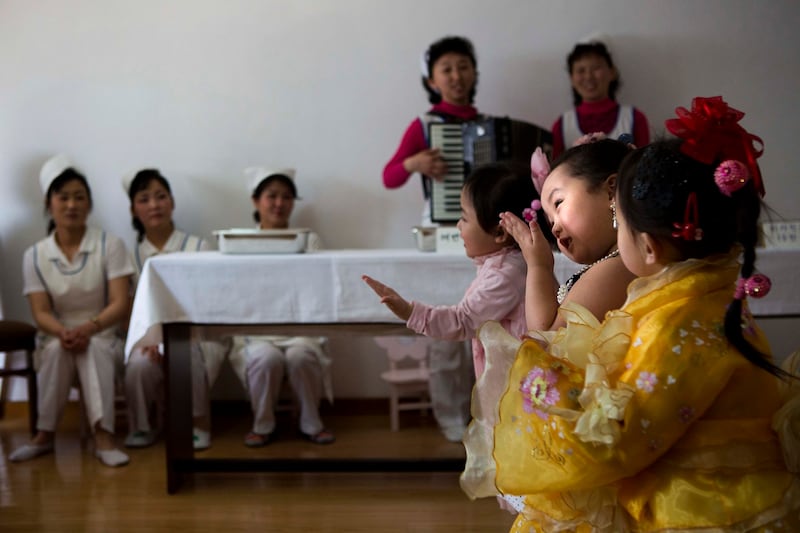The U.N. Security Council Sanctions Committee on North Korea approved a request from UNICEF for a sanctions exemption so that vaccine storage equipment could be transported into North Korea, U.N. documents showed.
UNICEF sent a letter to the committee on March 11 saying the cold chain equipment, which includes refrigeration units used to store vaccines, was critical to the successful distribution of vaccines to women and children in North Korea.
The U.N. has imposed economic sanctions on North Korea since 2006 in an effort to defund the country's nuclear program. Humanitarian organizations like UNICEF must apply for exemptions to these sanctions in order to legally transport goods into North Korea.
The committee approved all of UNICEF’s requests on March 20 under the stipulation that all necessary equipment be delivered in a single shipment to expedite the customs clearance process.
The committee also requested that UNICEF staff remain on-site in North Korea to monitor the distribution and use of the equipment.
The cold chain technology, manufactured in France, is estimated to have a total value of $85,000.
Dr. David Hong, who visited North Korea seven times between 2015-2019 to volunteer at Pyongyang Okryu Children's Hospital, emphasized the importance of the equipment to public health in North Korea.

"Their ability to produce and store vaccines has been limited by these cold chain components, so thinking about the future and other possible outbreaks, this is probably pretty essential,” he told RFA.
“It's an interesting support component because there's some instability in their power grid.”
‘It’s not reaching the right people’
It is not yet clear whether UNICEF will be granted entry into North Korea to deliver and distribute the equipment.
UNICEF told RFA in February that its staff members have been unable to enter North Korea since the country closed its borders in 2020 to prevent the spread of COVID-19.
The organization announced in its annual report released in February that it was unable to provide "a comprehensive assessment of the health situation facing women and children in North Korea" due to the absence of international staff on the ground.
Human rights experts have raised concerns about North Korea’s decision to open its borders to Russian tourists while continuing to deny entry to international aid organizations.
Robert R. King, former Special Envoy for Human Rights in North Korea, criticized Pyongyang’s border policies in a statement at the U.S. State Department on Feb. 23.
“The people who are coming for tourism are spending a little bit of money, but it’s not reaching the right people – the people that really need assistance from humanitarian organizations,” he said.
Responding to questions from RFA about the aid delivery, Simon Ingram, a spokesman from the UNICEF East Asia and Pacific Regional Office, was unable to confirm exactly when international aid workers would be able to enter North Korea.
“We continue to urge our government partners in DPR Korea to facilitate the earliest possible return of our international staff,” he said.
“The reopening of the border and the return of UNICEF’s full team to DPR Korea will be critical to ensuring more essential support can be provided in 2024 and programmes can be scaled up as necessary to meet the needs of children and women,” he said, using an acronym to refer to North Korea.
However, he did reaffirm that UNICEF would be delivering the equipment within 12 months of the approval date.
Translated by Claire S. Lee. Edited by Claire McCrea and Malcolm Foster.
